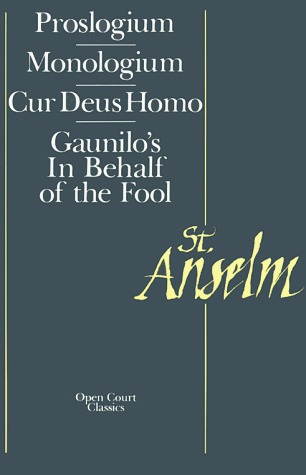What do you think?
Rate this book


328 pages, Paperback
First published January 1, 1100
“Insignificant man, rise up! Flee your preoccupations for a little while. Hide yourself for a time from your turbulent thoughts. Cast aside, now, your heavy responsibilities and put off your burdensome business. Make a little space free for God; and rest for a little time in him.
Enter the inner chamber of your mind; shut out all thoughts. Keep only thought of God, and thoughts that can aid you in seeking him. Close your door and seek him. Speak now, my whole heart! Speak now to God, saying, I seek your face; your face, Lord, will I seek.
And come you now, O Lord my God, teach my heart where and how it may seek you, where and how it may find you.
Lord, if you are not here, where shall I seek you when you are absent? But if you are everywhere, why do I not see you present? Truly you dwell in unapproachable light. But where is unapproachable light, or how shall I come to it? Or who shall lead me to that light and into it, that I may see you in it? Again, by what signs, under what form, shall I seek you? I have never seen you, O Lord, my God; I do not know your face.
What, O most high Lord, shall this man do, an exile far from you? What shall your servant do, anxious in his love of you, and cast out far from your presence? He is breathless with desire to see you, and your face is too far from him. He longs to come to you, and your dwelling-place is inaccessible. He is eager to find you, but does not know where. He desires to seek you, and does not know your face.
Lord, you are my God, and you are my Lord, and never have I seen you. You have made me and renewed me, you have given me all the good things that I have, and I have not yet met you. I was created to see you, and I have not yet done the thing for which I was made.
And as for you, Lord, how long? How long, O Lord, do you forget us; how long do you turn your face from us? When will you look upon us, and hear us? When will you enlighten our eyes, and show us your face? When will you restore yourself to us?
Look upon us, Lord; hear us, enlighten us, reveal yourself to us. Restore yourself to us, that it may be well with us, yourself, without whom it is so ill with us. Pity our toilings and strivings toward you since we can do nothing without you.
Teach me to seek you, and reveal yourself to me when I seek you, for I cannot seek you unless you teach me, nor find you unless you reveal yourself. Let me seek you in longing, let me long for you in seeking; let me find you by loving you and love you in the act of finding you.”